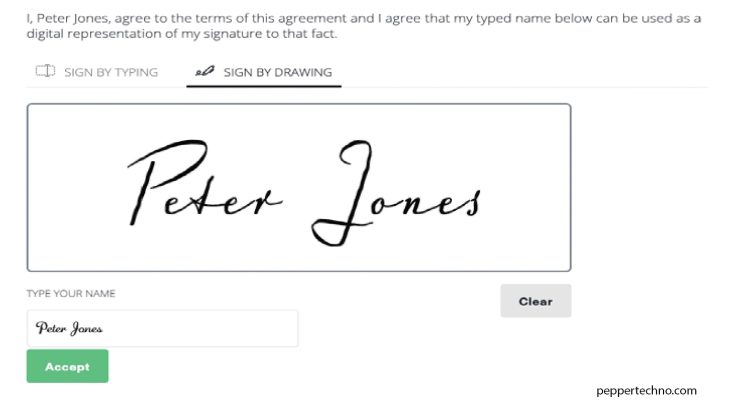What Is Wet Signatures: Understanding the Importance of Wet Signatures in Legal Documents
Legal documents are an essential part of our lives, whether it’s signing a contract for a new job, purchasing a property, or creating a will. We are discussing here the importance of wet signatures. These documents require signatures to be valid and enforceable. While electronic signatures have gained popularity in recent years, wet signatures are still considered the gold standard in legal documents. They provide a physical record of the signer’s intent and identity, making them an important aspect of the legal process.

Understanding Wet Signatures: Definition and Importance
A wet signature refers to a signature that is made by hand using ink on paper. It is called a “wet” signature because the ink is still wet when the document is signed. Wet signatures have been used for centuries and have become deeply ingrained in our legal system. They are important because they provide tangible evidence of the signer’s intent and identity. Unlike electronic signatures, which can be easily copied or manipulated, wet signatures are difficult to forge or alter, providing a higher level of security and authenticity.
The Legal Validity of Wet Signatures: Laws and Regulations
Wet signatures are legally valid in most jurisdictions around the world. However, the laws and regulations governing their use may vary from one jurisdiction to another. In general, wet signatures are required for certain types of legal documents, such as contracts, deeds, wills, and powers of attorney. These documents often have significant legal consequences, and wet signatures are necessary to ensure their validity.
In some jurisdictions, there are specific requirements for a wet signature to be considered valid. For example, the signature may need to be witnessed by a notary public or another authorized individual. It is important for legal professionals to familiarize themselves with the laws and regulations regarding wet signatures in their jurisdiction to ensure that they are obtaining valid signatures.
Types of Legal Documents that Require Wet Signatures
There are several types of legal documents that typically require wet signatures. Contracts, whether they are employment contracts, lease agreements, or business contracts, often require wet signatures to be legally binding. This is because contracts involve the exchange of rights and obligations between parties, and wet signatures provide evidence of the parties’ agreement.
Deeds, which are legal documents used to transfer ownership of real estate, also require wet signatures. The transfer of property rights is a significant legal action, and wet signatures are necessary to ensure the validity of the transaction. Similarly, wills and powers of attorney, which involve important decisions regarding an individual’s assets and personal care, require wet signatures to ensure that the individual’s wishes are properly documented and legally enforceable.
Benefits of Wet Signatures: Security and Authenticity
One of the main benefits of wet signatures is the high level of security and authenticity they provide. Wet signatures are difficult to forge or alter, making them a reliable form of verification. The physical nature of wet signatures also provides a record of the signer’s intent and identity, which can be crucial in legal disputes.
In addition, wet signatures can help establish the authenticity of a document. When a document is signed with a wet signature, it is clear that the signer has physically interacted with the document and has taken the necessary steps to indicate their agreement or consent. This can be particularly important in situations where there may be doubts about the authenticity or validity of a document.
Risks of Electronic Signatures: Fraud and Misrepresentation
While electronic signatures have become more common in recent years, they are not without risks. Electronic signatures can be vulnerable to fraud and misrepresentation, which can undermine their legal validity. Unlike wet signatures, electronic signatures can be easily copied or manipulated without leaving any physical evidence.
There have been cases where individuals have been able to fraudulently obtain electronic signatures by impersonating others or using sophisticated hacking techniques. This can lead to serious legal consequences, as the validity of the document may be called into question. Therefore, it is important for individuals and legal professionals to exercise caution when using electronic signatures and to be aware of the potential risks involved.
The Role of Notaries in Wet Signature Processes
Notaries play an important role in the wet signature process. A notary is a public official who is authorized to verify the identity of individuals and witness the signing of legal documents. Notaries are often involved in the execution of important legal documents, such as contracts, deeds, and wills, where wet signatures are required.
When a document is signed in the presence of a notary, the notary verifies the identity of the signer and ensures that they are signing the document willingly and knowingly. The notary then signs and seals the document, providing an additional layer of authenticity and validity. The presence of a notary can help prevent fraud and misrepresentation, as their role is to ensure that the signing process is conducted in accordance with the law.
Best Practices for Obtaining Wet Signatures: Tips for Legal Professionals
Legal professionals can take several steps to ensure that they obtain valid wet signatures. First and foremost, it is important to verify the identity of the signer. This can be done by requesting identification documents, such as a driver’s license or passport, and comparing them to the information provided by the signer.
Secondly, it is crucial to use appropriate language in the document to clearly indicate the intent of the parties involved. The document should clearly state that it requires a wet signature and that electronic signatures will not be accepted. This can help avoid any confusion or disputes regarding the validity of the signature.
Lastly, it is important to ensure that the document is properly executed. This means that all necessary parties have signed the document, and any witnesses or notaries have also signed and sealed it. It is important to follow the specific requirements of the jurisdiction to ensure that the document is legally valid.
Challenges of Obtaining Wet Signatures in the Digital Age
In the digital age, obtaining wet signatures can be challenging. Many people prefer to sign documents electronically due to convenience and efficiency. Electronic signatures can be easily obtained and shared, eliminating the need for physical documents and in-person meetings.
However, there are still many situations where wet signatures are necessary. For example, certain legal documents may require wet signatures by law, or parties involved in a transaction may prefer the added security and authenticity of wet signatures. In these cases, legal professionals must be prepared to obtain wet signatures and navigate the challenges of the digital age.
One challenge is the physical logistics of obtaining wet signatures. In a world where people are increasingly geographically dispersed, it can be difficult to gather all necessary parties in one location to sign a document. This can lead to delays and complications in the signing process.
Another challenge is the resistance to change. Many individuals and organizations are accustomed to using electronic signatures and may be hesitant to switch back to wet signatures. It is important for legal professionals to educate their clients about the benefits and legal requirements of wet signatures to ensure that they understand the importance of obtaining them.
Conclusion: The Enduring Importance of Wet Signatures in Legal Documents
Wet signatures continue to be an important part of legal documents. While electronic signatures have gained popularity in recent years, wet signatures provide a higher level of security and authenticity. They provide a physical record of the signer’s intent and identity, making them difficult to forge or alter.
While there are challenges in obtaining wet signatures in the digital age, they are still necessary in many situations to ensure the validity and authenticity of legal documents. Legal professionals must be prepared to navigate these challenges and educate their clients about the importance of obtaining valid wet signatures.
In a world where technology is constantly evolving, wet signatures remain a timeless and essential aspect of the legal process. They provide a tangible and reliable form of verification, ensuring that legal documents are enforceable and legally binding. As long as legal documents continue to play a crucial role in our lives, wet signatures will continue to be an integral part of the legal landscape.



